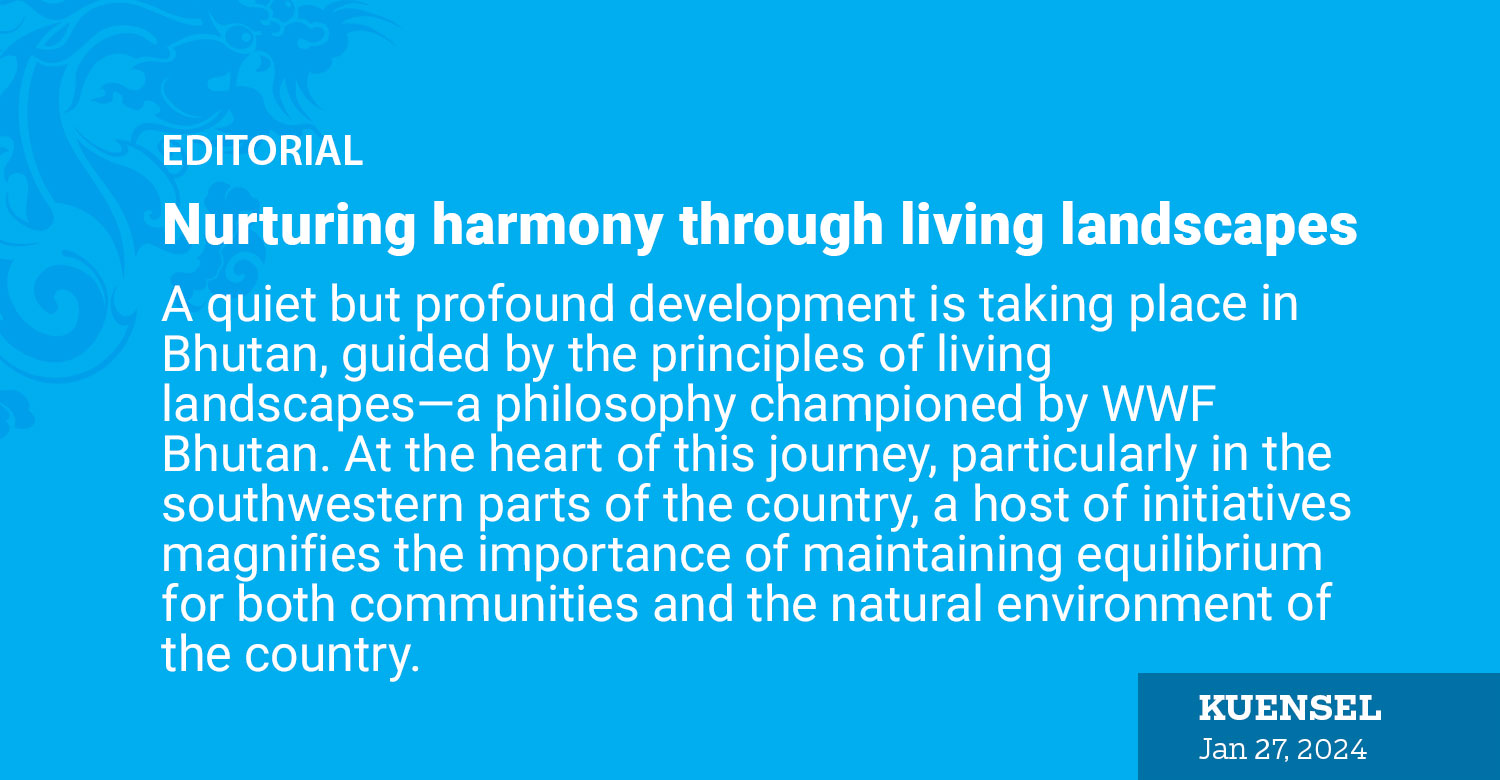A quiet but profound development is taking place in Bhutan, guided by the principles of living landscapes—a philosophy championed by WWF Bhutan. At the heart of this journey, particularly in the southwestern parts of the country, a host of initiatives magnifies the importance of maintaining equilibrium for both communities and the natural environment of the country.
But what do we truly know about this initiative? How does it balance our ecosystems?
WWF Bhutan’s commitment to preserving biodiversity must be lauded, which is the bedrock of resilient ecosystems. Collaborating with local communities, the organisation ensures conservation efforts align harmoniously with the unique flora and fauna indigenous to Bhutan and life and economy that revolve around this unique richness of the country.
From safeguarding the elusive snow leopard navigating mountainous terrain to protecting the vibrant birdlife gracing the skies, WWF Bhutan’s projects stand as vigilant guardians, significantly contributing to the preservation of the country’s diverse biodiversity—a legacy intended for future generations.
Living landscapes, envisioned as vibrant and interconnected ecosystems, depend on the delicate interplay of ecological processes. WWF Bhutan extends its efforts to support these processes, recognising the intricate ballet of pollination and the rejuvenating capabilities of healthy soil. Through sustainable agricultural practices and ambitious reforestation initiatives, WWF Bhutan and national partners strive to enhance ecological resilience, ensuring nature’s symphony endures through the hills and valleys for generations.
Results have been very inspiring.
The success of living landscapes is intricately woven with the well-being of local communities. Balancing development and conservation, the organisation empowers communities with sustainable livelihoods. Initiatives in the south-western regions focus on enhancing local capacities, whether through eco-friendly tourism, community-based forest management, or the promotion of climate-resilient agricultural practices.
By intricately linking the prosperity of communities with the health of the environment, WWF Bhutan exemplifies the transformative potential embedded within the philosophy of living landscapes.
At the core of living landscapes lie the enduring benefits they offer, and WWF Bhutan stands as a beacon of environmental stewardship. Advocating for the responsible use of natural resources, implementing partners contribute to the present and future well-being of both nature and society. This commitment extends beyond borders, with WWF Bhutan actively engaging in transboundary conservation initiatives, fostering regional partnerships to address shared challenges and promote sustainable practices.
While the vision of living landscapes is compelling, the journey toward sustainable cohabitation is not without challenges. Human-wildlife conflict, limited resources, and the impacts of climate change pose formidable obstacles. However, with a collaborative spirit, innovative solutions, and shared commitment, WWF Bhutan and local communities are triumphing over these challenges.
Through community engagement, technology-driven monitoring, and green financing mechanisms, the organisation is laying a resilient foundation for living landscapes to thrive. Its dedication to nurturing the living landscapes of the country is a testament to the transformative power of conservation.
By preserving biodiversity, supporting ecological processes, and prioritising the well-being of communities, WWF Bhutan and implementing partners not only contribute to local prosperity but also showcase a model for sustainable coexistence. In the embrace of these living landscapes, Bhutan’s enchanting beauty and ecological richness will continue to flourish, leaving a legacy of harmony between nature and humanity.


